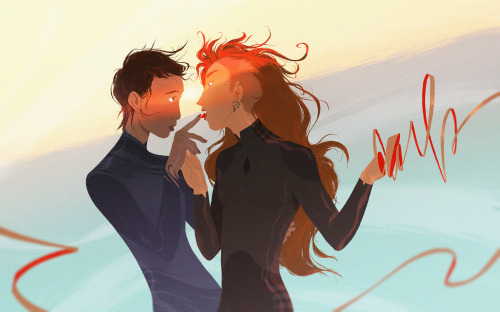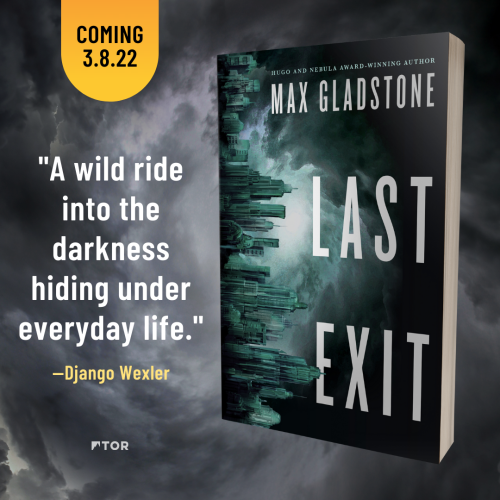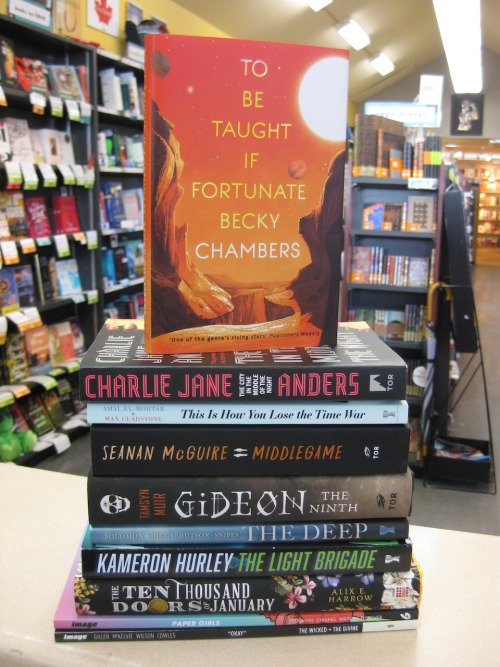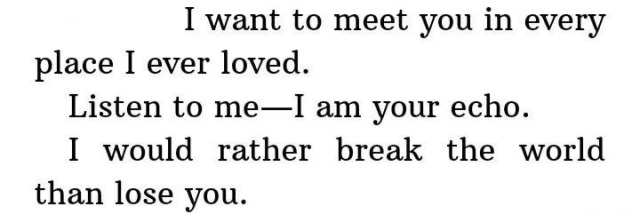Star Ratings:
Characters: ***** 5 stars
Character Development: **** 4 stars
Plot: **** (4 stars)
Writing: ***** (5 stars)
Overall: ****½ (4/12 stars)
Age range recommendation: 14 +
Review by Morgan. Originally posted Joly 26, 2014 over at Navigating The Stormy Shelves.
Let me just say that after several months without reading any “grown up” Fantasy, this book reminded me how awesome it could be! I was incredibly impressed with the story and the world, even though it took me much longer than expected to finish reading. My slow pace was through no fault of Mr. Gladstone, who wrote well and kept the story moving along. I just don’t have a head for legal business, politics, or religion. And this book is about the legal proceedings surrounding the sudden death of a city’s god. Intimidating subject matter aside, I happily soldiered on through the book and enjoyed every page; every chase on the rooftops; and every terrifying glimpse of raw magic.
A quick summary, which barely scratches the story’s surface: The beloved god Kos has kept Alt Coulumb warm and functioning for so long with his love, that when he dies unexpectedly the city’s citizens teeter on the brink of dangerous civil unrest. Tara Abernathy, who we first meet immediately following her expulsion from a floating school of “Craft,” has joined up with a formidable Craftswoman to represent Kos’s church against his creditors: other nations who would have a claim on his power, which gods use as diplomatic currency in Gladstone’s world. Teamed up with a devoted, chain-smoking cleric and an officer of Justice suffering from a…unique…addiction, Tara has to grapple with mythical beings, old enemies, and legal jargon on her quest for the truth: can you murder a god? And what does that mean for the people who believe in them?
Three Parts Dead made me think hard about complicated stuff. It shoved me into a world not totally different from our own (lawyers still wear pinstriped suits) but built on a solid foundation of fantasy logic and magical properties (those lawyers argue their truths in violent magical combat on astral planes). The politics and religion were way more interesting than our own here on Earth, but the drama around them shed a unique light on how we, ourselves, use our faith in Greater Powers and the government. I am giving my brain a little break for the rest of this month, but am fully intending to read Gladstone’s next book whenever the craving for smart and complicated — but super fun — fantasy hits.
Oh, and there’s a pirate in the book. He, like all the other characters, was fantastic. Not everyone’s nice, not everyone’s sympathetic, but no one is boring and that’s what matters most.
I recommend Three Parts Dead to fans of Neil Gaiman’s American Gods, to readers of legal thrillers who want to start a really cool fantasy series, and to fantasy enthusiasts who are looking for a diverse cast of characters in uniquely modern situations.







